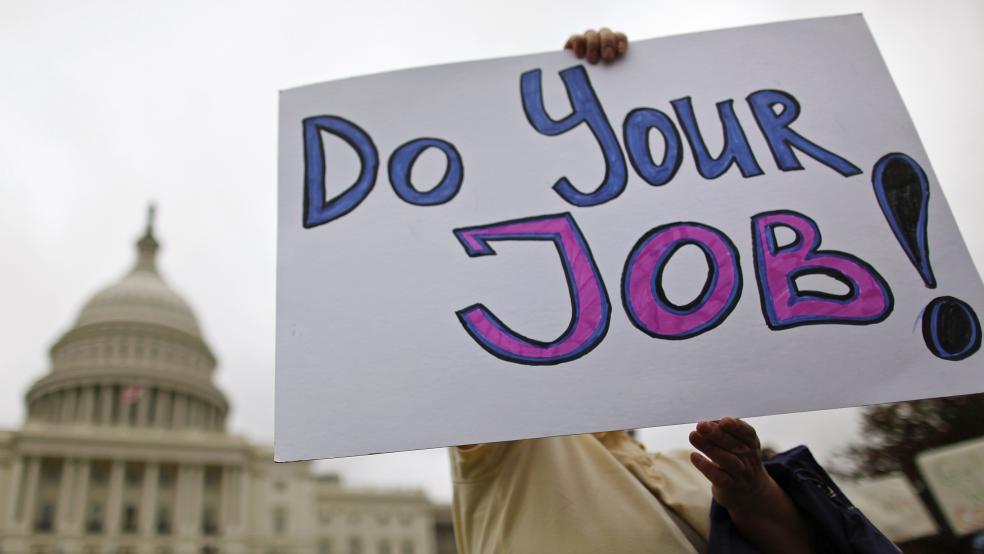Most federal employees are focusing their shutdown consciousness on what lies ahead.
The current continuing resolution will expire Dec. 11, and Congress has yet to lay out a plan to avoid a lapse in appropriations.
Related: Has the GOP's Debt Ceiling Fever Really Broken?
Some feds, however, are still looking back. Hundreds of thousands of federal employees will soon receive notification of their eligibility to join a lawsuit that hopes to bring financial compensation to those forced to work during the 2013 government shutdown.
A federal judge ruled in August the government violated federal labor laws when it delayed payments to employees when agencies shuttered their doors last October. The suit was originally brought by five Bureau of Prisons employees seeking damages after they were forced to work for two weeks during the shutdown but did not receive their full paychecks until after agencies reopened.
More than 2,000 employees have since signed onto the collective-action case, but that number could soon skyrocket. When the federal judge in August denied the government’s motion to dismiss the case, it gave Uncle Sam time to prove it should not be held liable for notifying all shutdown-excepted feds of their right to join the suit.
The judge, however, decided the notifications must be sent out by email or other means in early 2015. About 1.3 million employees were forced to work during the shutdown, but an attorney with Mehri & Skalet, the law firm representing the employees, was not yet sure of the exact number of workers that will receive the notification of eligibility. Employees must affirmatively sign up to join the lawsuit in order to receive any potential benefits.
Related: McConnell Hints at Another Debt Ceiling Showdown
Most eligible employees will receive the notification on their government emails. The law firm is still finalizing the list of recipients with the government, Heidi Burakiewicz, an attorney at Mehri & Skalet said. Employees will have 105 days from the time they receive the notification to sign on to the suit.
“The vast majority of employees don’t even know the case exists and once they hear about it they will definitely be interested in joining,” Burakiewicz said. “There is nothing to lose by signing up.”
Mehri & Skalet argued during initial proceedings that federal employees incurred damages because the delayed paychecks left them unable to pay bills and medical expenses. The government unsuccessfully contended during oral arguments any late fees incurred by federal workers during the shutdown were made due to “poor financial management decisions.”
While U.S. Court of Federal Claims Judge Patricia Campbell-Smith sided largely with the plaintiffs, she has not yet ruled on whether they are entitled to “liquidated damages,” or financial compensation, from the federal government.
Related: Federal Employees Do Union Work on Taxpayers' Dime
The case is currently in the discovery phase, which will end May 25. The plaintiffs plan to file for a summary judgment one month after it ends, and expect a decision on liquidated damages at some point thereafter.
Plaintiffs are seeking compensation of $7.25 - the federal minimum wage - times the number of hours worked between Oct. 1 and Oct. 5, the period in which paychecks were delayed. This amounts to $290 for employees who worked 8-hour days, plus any overtime they are due.
Unlike furloughed workers, employees who reported to work during the shutdown were guaranteed retroactive pay. However, the plaintiffs in Martin et. al. v. The United States argue because the excepted workers faced hardships during the shutdown, such as an inability to pay bills on time, they should receive extra compensation.
This article originally appeared in Government Executive.
Read more at Government Executive:
Cruz: GOP Shouldn't Fear a Gov't Shutdown Over Immigration
Play of the Day: Revising How a Bill Becomes Law
Timeline of Christie's Nonresponse Responses on Immigration




